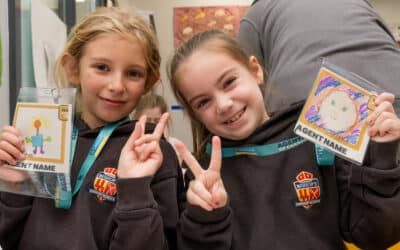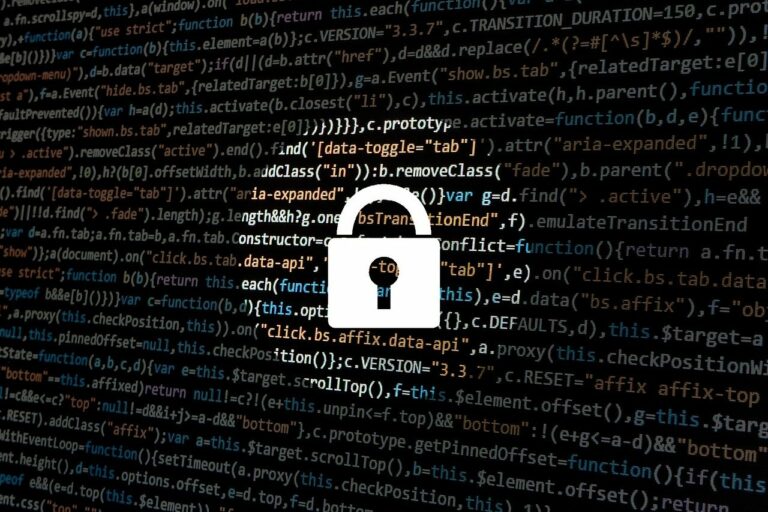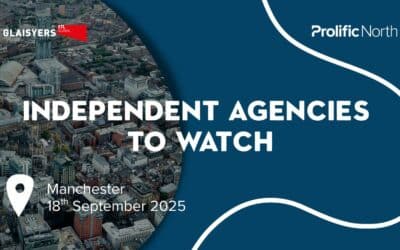A Greater Manchester mother who says her 11-year old daughter was “groomed” by users on streaming site Spotify has questioned the tech firm’s child safety policies after she contacted its online support to report her findings.
The mother, who has asked to be referred to as Rachel (not her real name) to protect her daughter’s anonymity, described to Prolific North how users on the app, which does not offer a private messaging feature, are communicating with children by creating empty playlists, then exchanging messages and instructions by changing the playlist names and song titles on it.
As the playlist is shared, more and more potential “groomers” are added to the group, contact details can be shared to communicate outside of Spotify, and the demands made of minors become increasingly inappropriate.
Rachel, a teacher, says that by many standards she would be viewed as a strict parent in the way she polices her daughter’s internet use – she was not allowed access to most social media, messaging or gaming sites and apps, and her mother widely employed parental controls over what internet use occurred. She was permitted to use Spotify precisely because it did not include communication between users, and featured songs the child would use to practice for her singing lessons.
Rachel set up a separate email address, which her daughter could not access, to sign up to the site and assumed all was safe, until she checked the email over Christmas to try and learn why her daughter could no longer access her account.
Rachel’s daughter’s account had been terminated, she discovered, due to breaking Spotify’s code of conduct by posting explicit images. Investigating further, the mother learned that her daughter’s coded conversations with unknown internet users, which began as long ago as Summer 2022, featured many explicit requests for photos and videos, demands for further contact details, and ultimately resulted in her being coerced into posting explicit images of herself as “song” artwork on the site.
Rachel immediately contacted both the police and Spotify. She says her initial response to the streamer was one of gratitude for acting on the problem and terminating the account before it could go further.
That gratitude was tempered when Spotify’s customer service team advised her that they were unable to act on her request to remove all of the images, despite the account being terminated, and would have to pass the request on to another team.
Rachel says she was also told that a transcript of the online conversation with customer services could not be provided as evidence of her removal request, so she took screenshots of the conversation.
When the images remained online the following day, Rachel says she took matters into her own hands, painstakingly reporting each image individually, at which point she says “they were taken down quite quickly.”
Rachel has questioned the efficiency of a child protection system that apparently terminates an account featuring illicit images and blocks access, but leaves the images online: “I think [the termination] means that she can’t access it. I think that’s all it means. It seemed very much a stock response,” she added.
Prolific North contacted Spotify, who said in a statement: “Spotify takes the safety of minors on our platform extremely seriously, and we do not allow content that promotes, solicits, or facilitates child sexual abuse or exploitation. We have processes and technology in place that allow us to detect and remove any such exploitative material.”
Spotify declined to respond to specific questioning over the process of the removal of these particular photos, or whether it had seen this kind of activity before, although a 2022 Vice investigation entitled “What’s Going On With the Hardcore Porn Images on Spotify,” to which Spotify also issued a statement, had certainly alerted the streamer to the presence of inappropriate content on its site. There was no suggestion that minors were involved on that occasion.
Child safeguarding specialist and consultant Gabriella Russo has been supporting the family since she was introduced to them through a mutual acquaintance, ironically on social media, following their discovery.
Russo supplies safeguarding training, both on and offline, to local authorities, schools, charities and parents themselves. She has worked extensively with the NSPCC, including for five years as a manager leading an abuse prevention team in primary schools, and is the online safety expert for the leading fostering resource FosterWiki. Although Russo says this is the first time she has seen this particular approach to grooming youngsters, it comes as no surprise to her.
“They really will do anything, and where other routes are becoming more well known and better policed they’ll find other ways. That’s what we’re up against, so there needs to be conversation, and parents and carers need to be trying their best to keep up to date,” she says.
Russo says that for parents, the key to keeping children safe online is talking: “As a parent, we have to be having these conversations. It can be difficult when you’ve got the teenage ‘oh whatever’ to contend with, but we can’t be afraid to be the parent,” she says. “We need to be helping our kids to understand what the dangers are, but that doesn’t have to be negative. There are plenty of conversations we can have about healthy relationships, not just the unhealthy ones.”
Talking is something that Rachel hopes to be doing plenty more of too. Having absorbed the initial shock of her discovery, she now wants to have “these conversations” with as many people as she can as she launches what she describes as a “crusade” to make parents aware of the dangers online, even in seemingly safe spaces.
Rachel and her husband have already petitioned local MP Andrew Gwynne – fittingly shadow minister for public health – to raise the case in parliament, particularly timely as the online safety bill passes through the house.
Rachel hopes that by highlighting the case, she may attract a celebrity or influencer may take on her cause publicly and ensure that stamping down on online abuse is taken seriously, not just by politicians in the bill, but also the wider public.
“The message has got to be that everybody, in every corner of the internet needs to be actively seeking out and prohibiting child sexual exploitation and child sexual abuse. It’s not okay,” she says. “These people need to know that there isn’t going to be a corner to hide in anymore, and if a company is made aware of something, then there needs to be a legal duty to act and to close that loophole, and that needs to be enforced from above if companies aren’t doing it themselves.”
Russo too has some salient advice for government as the bill makes its way through the house: “My message to Rishi Sunak would be this,” she says. “How about, instead of making everyone learn maths until they’re 18, we look at the safety of our kids online? We teach them how to recognise grooming, how to be safe, and how to look after their mental health?”














